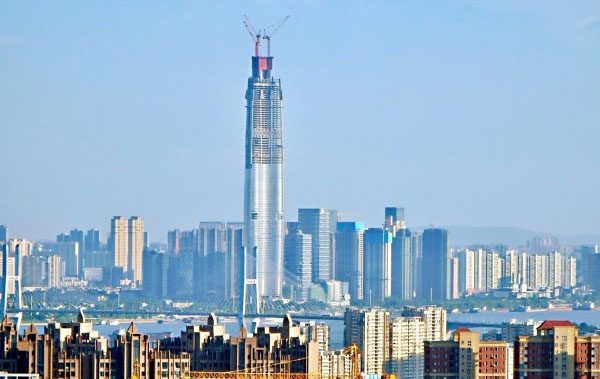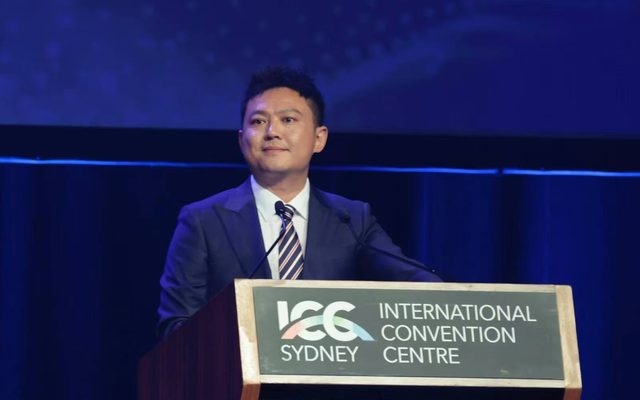This article is from the Australian Property Journal archive
THE China Construction Third Engineering Bureau Co has halted construction on a 475m mega skyscraper as liquidity tightens and developers face risks to refinance an unprecedented $60 billion in domestic debt maturities in 2020.
The Financial Times reported that construction of the Wuhan Greenland Center in the central city of Wuhan has been suspended, after the government backed Shanghai-based property developer Greenland Group failed to make “a significant” project payment.
Shanghai-based E-house China Research and Development Institution analyst Yan Yuejin told FT that these are the sign of the times.
“Unfinished super tall skyscrapers, which cost a huge amount of funds to build, are a typical sign of economic recession.
“They are financed by credit and will run into trouble when lenders begin to scale back.”
In the past Greenland has been able to finance projects from apartment sales however property sales have slowed in China.
According to Standard & Poor’s, property sales growth in China will continue to decelerate in 2020 as the government tightens up liquidity.
“We expect residential sales to stay flat or to grow mildly by 5% in 2020 on the back of several years of double-digit growth,” S&P predicts.
Slowing property sales is not the only challenged faced by developers, access to finance is also becoming increasingly difficult.
S&P said brand new measures around domestic and offshore bond issuance as well as trust financing or shadow banking means all major funding sources are being constricted.
“After the liquidity “rollercoaster” in 2019 caused parallel fluctuations in sales, we do not expect drastic policy swings given Beijing’s conviction to stabilize home prices, land prices, and property price speculation.
“Considering that liquidity conditions have been relaxed at the beginning of 2019 and then retightened since mid-2019, we expect the Chinese government to maintain current policies to prevent any risk of overheating (which happened briefly in 2Q2019), and be more discerning in city-specific policies.
“Tightening on developers’ funding channels should continue to be more stringent than that on the physical market. Although that could create more refinancing risk for weaker players, it could also stave off developers’ debt-funded expansions, thereby supporting their credit standing,”
Developers are also facing looming debt maturities next year with an estimated $87 billion due.
“The risk is escalating fast for weak developers with upcoming sharp maturities but limited refinancing ability or experience. For some of these developers, low investor confidence and market volatility may limit their ability to reissue or refinance their dollar denominated bonds, at a time when policies don’t offer a lot of room for slippage,”
S&P said whilst Chinese developers’ overall maturity of about $27 billion offshore dollar-denominated bonds in 2020 looks largely manageable, it is the lumpy maturity concentration and needing to deal with another $60 billion in domestic bonds which will be an unprecedented feat for some to manage.
“In any case, we believe the risk mainly lies within smaller developers that have poor operating and financial performance and concentrated maturities in 2020. They may have genuine difficulties in refinancing if their yields are prohibitively high. They don’t have many other options either, considering each funding channel being capped. Their own cash flow may be the sole support, which, in a number of cases, is already weaker than peers.”
However, things are not all bleak. S&P expects credit divergence to accelerate which will benefit some players.
“As industry growth slows and smaller players are driven into a hard place, we view larger companies and State-owned Enterprises (SOEs) as having more opportunities to grab market share.
“The challenge is for them to strike a balance, as leverage trend hinges on their willingness to control debt by balancing growth aspirations. As for Chinese developers’ financial policy, the government’s stance of promoting deleveraging also has an impact on privately-owned developers’ financial management.
“A number of developers are holding back on land acquisitions and could imply softer growth aspirations. With funding being generally less available, it is a new normal that developers need to live with.
“Some of them also want to positively respond to government’s call to deleverage. For SOE developers, the government does have specific leverage targets for them to comply with. Hence this environment could actually instigate deleveraging and help improve credit standing. But this is subject to solid operations and abundant saleable resources.” S&P said.




